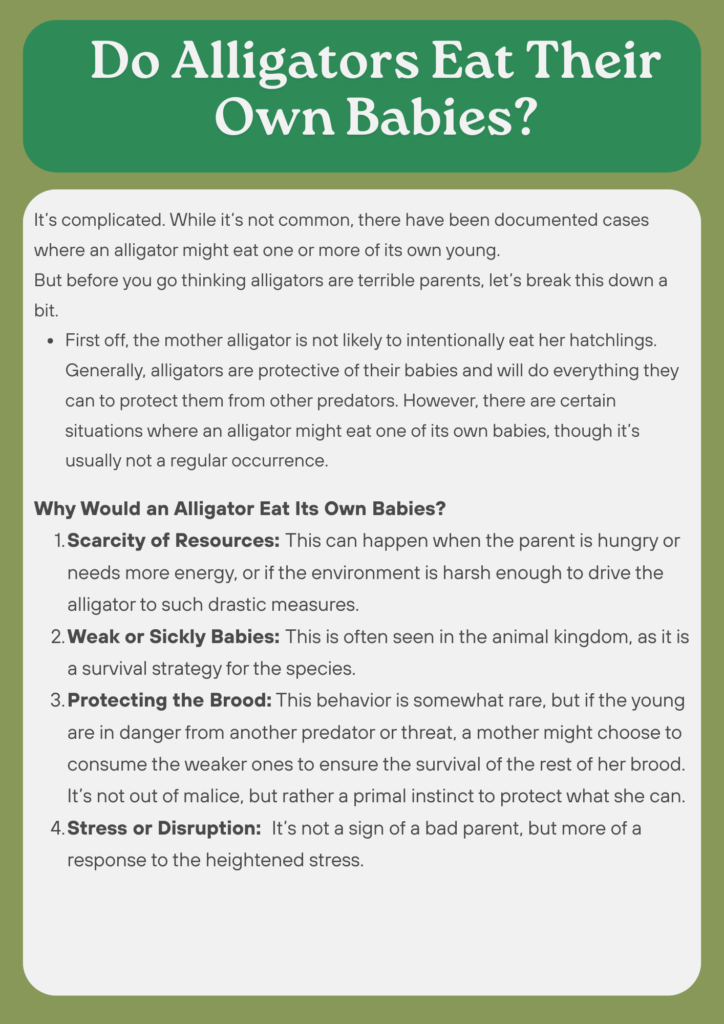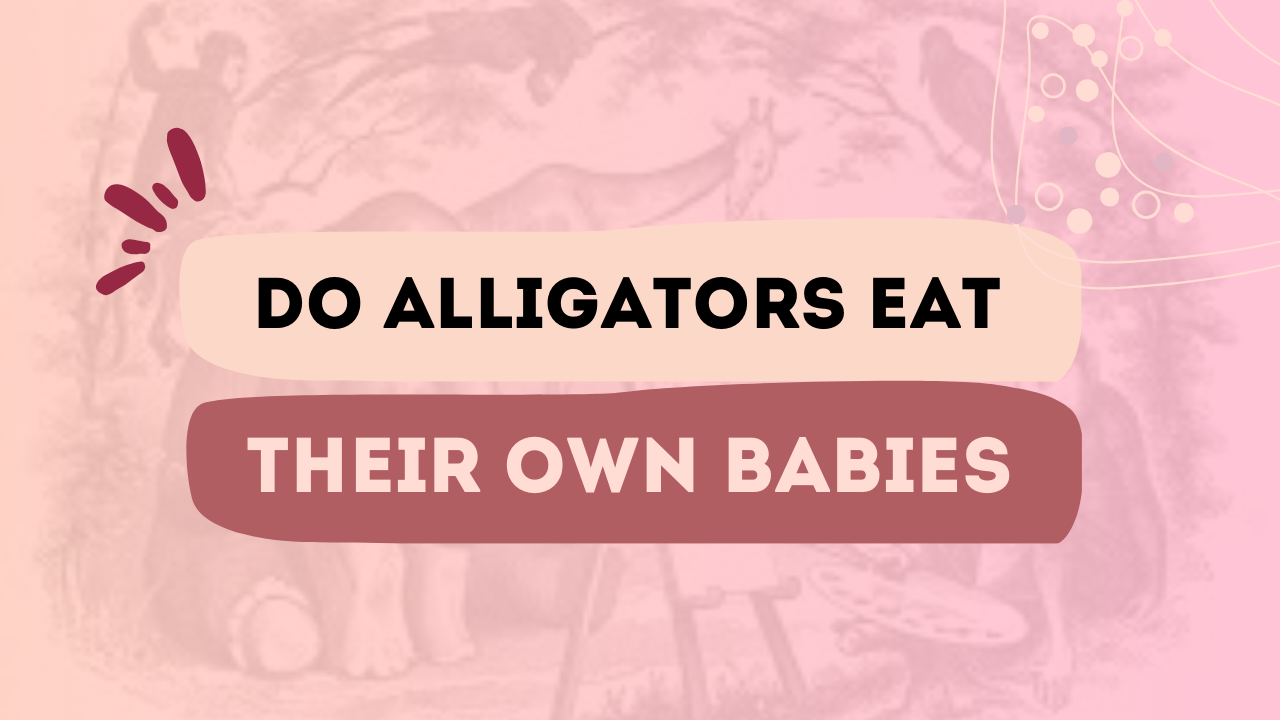Have you ever wondered if alligators eat their own babies? It’s a question that might sound strange, but it’s one that many people ask when they first learn about these powerful, ancient creatures.
Alligators are both fascinating and terrifying, and their behavior can seem, well, a little shocking at times. So, let’s dive into this unusual topic and explore what’s true and what’s just myth when it comes to alligator parenting.
Table of Contents
It’s important to note that alligators are generally protective of their young, but like many animals, survival instincts can lead to some surprising behaviors. So, do alligators actually eat their own babies, or is that just something people made up to scare us? Let’s find out!
Alligators and Their Young: The Early Stages
Before we jump into whether alligators might eat their own babies, it’s essential to understand a bit about their parenting style. Alligators, believe it or not, are actually pretty good parents compared to some other reptiles.
When female alligators give birth, they lay their eggs in a carefully constructed nest made of vegetation and mud. Once the eggs hatch, the mother alligator—often with a lot of pride—will help the baby alligators (called hatchlings) out of the nest and into the water.
The mother is extremely protective of her young in these early stages, carrying them in her mouth to the safety of the water.
Alligators live in an environment filled with potential dangers, so this is a critical time for the hatchlings. It’s surprising, then, that in some rare instances, they might face danger from… their very own mother.
So, Do Alligators Eat Their Own Babies?
Here’s the big question: do alligators actually eat their babies? The simple answer is: it’s complicated. While it’s not common, there have been documented cases where an alligator might eat one or more of its own young.
But before you go thinking alligators are terrible parents, let’s break this down a bit.
First off, the mother alligator is not likely to intentionally eat her hatchlings. Generally, alligators are protective of their babies and will do everything they can to protect them from other predators. However, there are certain situations where an alligator might eat one of its own babies, though it’s usually not a regular occurrence.

Why Would an Alligator Eat Its Own Babies?
It might seem shocking, but there are a few reasons why an alligator might turn on its own offspring. Some of these reasons are related to instinctual survival, while others could be related to stress, lack of resources, or even something that seems like an error in judgment. Let’s break them down:
- Scarcity of Resources: Like many wild animals, alligators have survival instincts that can sometimes make them do things we would consider cruel. If food is scarce or if an alligator is under extreme stress due to environmental conditions, it might eat a baby alligator to survive. This can happen when the parent is hungry or needs more energy, or if the environment is harsh enough to drive the alligator to such drastic measures.
- Weak or Sickly Babies: In some cases, alligators might eat their babies if they are sickly, weak, or deformed. It’s a harsh reality of the wild, but many animals will eliminate the weak in order to conserve resources for the healthier ones. If a baby alligator is not developing properly or is in some way unfit for survival, the mother might remove it from the population by eating it. This is often seen in the animal kingdom, as it is a survival strategy for the species.
- Protecting the Brood: There are some instances where an alligator might eat its young to protect the remaining hatchlings. This behavior is somewhat rare, but if the young are in danger from another predator or threat, a mother might choose to consume the weaker ones to ensure the survival of the rest of her brood. It’s not out of malice, but rather a primal instinct to protect what she can.
- Stress or Disruption: Alligators are creatures of habit and very sensitive to changes in their environment. If something disrupts their environment—like extreme weather, human activity, or the presence of other animals—they might react in unexpected ways. Under stress, an alligator might make decisions that seem odd, including harming or eating its own young. It’s not a sign of a bad parent, but more of a response to the heightened stress.
Are Alligator Parents Truly “Bad” Parents?
Okay, so now we know that while it’s possible for an alligator to eat its babies under certain circumstances, that doesn’t mean they’re terrible parents. In fact, alligators show a lot of care and attention to their young in the early stages of life.
Mother alligators will guard their nests fiercely and protect their young from predators. They even communicate with their babies through a series of grunts and chirps. These sounds help the young alligators find their mother, and she will keep a close eye on them as they grow.
In a way, alligator parenting shows us how instinctual and adaptive these creatures are. They do what’s necessary to ensure the survival of their species, even if that means making difficult decisions in extreme situations. While it might seem cold-hearted from a human perspective, it’s really just the way nature works.
Conclusion: Nature’s Survival Instincts at Play
So, do alligators eat their own babies? Yes, it can happen, but it’s not typical behavior. In most cases, mother alligators are incredibly protective of their young, and they work hard to ensure their survival.
However, like many animals, alligators sometimes act based on survival instincts that we might find hard to understand. Whether due to a lack of resources, a perceived threat, or a natural instinct to protect the strongest of their offspring, alligators are not immune to making harsh decisions when it comes to survival.
In the end, alligator behavior is complex and shaped by the harsh realities of their environment. It’s a reminder that nature, while beautiful, can also be brutally honest.

